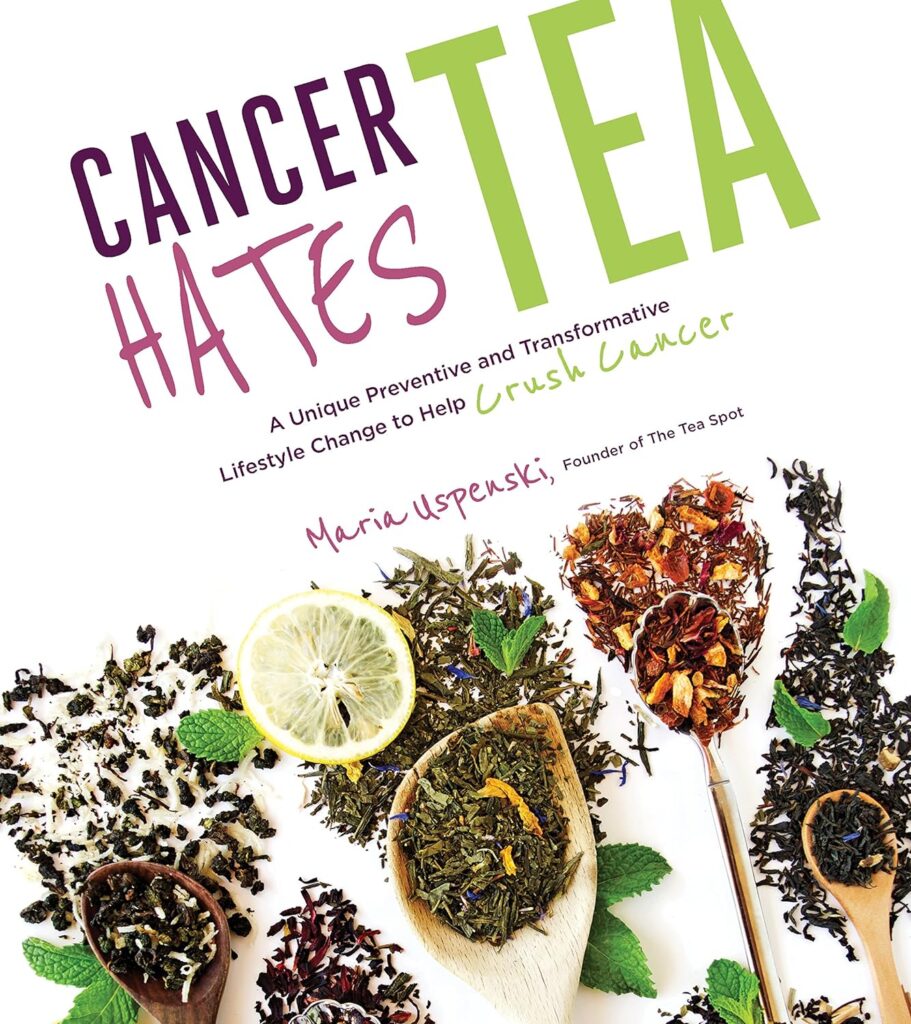Preventive health screening guidelines provide age appropriate tests that can help prevent illness and promote healthy aging.
The guidelines used are for CTFPHC- Canadian Task Force on Preventive Health Care, and the United States Preventive Services Task force.
Most of the guidelines listed here are for Canadian adult patients of average risk for the disease who are asymptomatic. The focus is on the common screening tests for seniors and other gender specific tests.
Tests are usually based on age, gender, risk factors and family health history, so it is impossible to list them all in this article
Talk with your doctor about which screening tests are right for you. Visit objectivehealth.ca for more comprehensive information about your gender and age from their calculator so you know which tests you should discuss with your doctor.
Table of Contents
Recommended Health Screenings for Women
Recommended health screenings for women vary by age, risk factors, and personal health history. If you are seeking more specific detailed age appropriate information, check https://objectivehealth.ca/screening/ for a personalized overview based on your gender, age, whether diabetic or not, whether a smoker or not etc. The Table below provides the most commonly recommended screenings for women.
Preventive Health Screening Guidelines: General Overview for Women
| 1. Breast Cancer Mammogram: Every 1-2 years starting at age 50; earlier for women at higher risk. | 2. Cervical Cancer Pap Smear and HPV Testing: Every 3 years starting at age 21; women 30-65 should have a Pap smear combined with HPV testing every 5 years. |
| 3. Colorectal Cancer Colonoscopy: Every 10 years starting at age 50 – 74, or earlier for those with a family history. | 4. Osteoporosis DEXA Scan: Starting at age 65; earlier for women at high risk of osteoporosis. |
| 5. Cholesterol Lipid Panel: Women age 50 and older or who are post-menopausal every 4-6 years; more frequently for those with cardiovascular risk factors. | 6. Blood Pressure Blood Pressure Measurement: Routinely at every interaction with a physician or healthcare professional |
| 7. Diabetes Blood Glucose Testing: Every 3 years starting at age 45; earlier for those with risk factors. | 8. Skin Cancer Skin Exam: Annually, or as recommended by a healthcare provider based on risk factors. |
| 9. Sexually Transmitted Infections (STIs) Chlamydia and Gonorrhea Screening: Annually for sexually active women under 25 and older women at increased risk. HIV Testing: At least once between ages 13-64 and annually if at high risk. | 10. Eye Health Eye Exam: Every 2 years starting at age 40; earlier and more frequently if there are vision problems or risk factors. |
| 11. Hearing Hearing Test: Once every 10 years for women under 50, and every 3 years after age 50. | 12. Thyroid Function TSH Test: Every 5 years starting at age 35, or as recommended by a healthcare provider. |
| 13. Immunizations Flu Vaccine: Annually. Tetanus, Diphtheria, and Pertussis (Tdap) Vaccine: Once, then Td booster every 10 years. HPV Vaccine: Recommended up to age 26 if not previously vaccinated. Shingles Vaccine: Recommended for women over 50. Pneumococcal Vaccine: Recommended for women over 65. | 14. Mental Health Depression Screening: 2013 CTFPHC Guideline: Recommend not routinely screening.2023 USPSTF Guideline: The USPSTF recommends screening for depression in the adult population, including pregnant and postpartum persons, as well as older adults (Grade B). |
| 15. Obesity Body Mass Index (BMI): Regularly to assess and manage obesity-related health risks. | |
These recommendations are general guidelines.
Women should consult with their healthcare providers to personalize screening schedules based on their specific health needs and risk factors.
What are Recommended Health Screenings for Men?
Recommended health screenings for men also vary by age, risk factors, and personal health history. If you are looking for age appropriate details, check https://objectivehealth.ca/screening/ for a personalized overview based on your gender, age, whether diabetic or not, whether a smoker or not etc.
Here is a general overview of commonly recommended screenings:
Preventive Health Screening Guidelines: General Overview for Men
| 1. Prostate Cancer Prostate-Specific Antigen (PSA) Test: Discussion about screening should start at age 50; earlier for those at high risk (e.g., African American men and those with a family history of prostate cancer). Recommended annual screening is between age 50-70, for individuals with a prostate as long as they are in reasonably good health. | 2. Abdominal Aortic Aneurysm Ultrasound Screening: Once for men aged 65-75 who have ever smoked. |
| 3. Colorectal Cancer Colonoscopy: Every 10 years starting at age 50 -74, or earlier for those with a family history. | 4. Osteoporosis Bone Density Test: Recommended for men at higher risk due to factors like long-term steroid use, low body weight, smoking, or family history. |
| 5. Cholesterol Lipid Panel: Men age 40 and older, every 4-6 years ; more frequently for those with cardiovascular risk factors. | 6. Blood Pressure Blood Pressure Measurement: Routinely at every interaction with a physician or healthcare professional |
| 7. Diabetes Blood Glucose Testing: Every 3 years starting at age 45 or earlier for those with risk factors. | 8. Skin Cancer Skin Exam: Annually, or as recommended by a healthcare provider based on risk factors. |
| 9. Sexually Transmitted Infections (STIs) Chlamydia and Gonorrhea Screening: Annually for sexually active men under 25 and older men at increased risk. HIV Testing: At least once between ages 13-64 and annually if at high risk. | 10. Eye Health Eye Exam: Every 2 years starting at age 40; earlier and more frequently if there are vision problems or risk factors. |
| 11. Hearing Hearing Test: Once every 10 years for women under 50, and every 3 years after age 50. | 12. Thyroid Function TSH Test: Every 5 years starting at age 35, or as recommended by a healthcare provider. Testing based on symptoms or risk factors rather than routine screening for men. |
| 13. Immunizations Flu Vaccine: Annually. Tetanus, Diphtheria, and Pertussis (Tdap) Vaccine: Once, then Td booster every 10 years. Shingles Vaccine: Recommended for women over 50. Pneumococcal Vaccine: Recommended for women over 65. | 14. Mental Health Depression Screening: 2013 CTFPHC Guideline: Recommends not routinely screening. 2023 USPSTF Guideline: The USPSTF recommends screening for depression in the adult population, including pregnant and postpartum persons, as well as older adults (Grade B). |
| 15. Obesity Body Mass Index (BMI): Regularly to assess and manage obesity-related health risks. | |
These recommendations serve as general guidelines. Men should consult with their healthcare providers to tailor screening schedules based on individual health needs and risk factors.
12 Differences between Gender Specific Recommendations
The major differences between recommended health screenings for men and women stem from gender-specific health risks and conditions. Here are the key distinctions:
Breast Cancer Preventive Health Screening Guidelines
Typically gender specific. Routine breast cancer screening is not typically recommended due to its rarity in men.
- Women: Regular mammograms starting at age 50 (or earlier for high-risk individuals).
Cervical Cancer Preventive Health Screening Guidelines
Gender specific. There is no equivalent screening in men as they do not have a cervix
- Women: Pap smear and HPV testing starting at age 21.
Prostate Cancer Preventive Health Screening Guidelines
Gender specific. There is no equivalent screening in women as they do not have a prostrate
- Men: PSA test and digital rectal exam discussions starting at age 50 (or earlier for high-risk individuals).
Bone Density (Osteoporosis)
- Women: DEXA scan starting at age 65 (or earlier for high-risk individuals).
- Men: Bone density test for those at higher risk due to factors like steroid use or family history.
Sexually Transmitted Infections (STIs)
- Women: Annual screening for chlamydia and gonorrhea for sexually active women under 25 and older women at increased risk.
- Men: Screening for sexually active men at increased risk, particularly for HIV.
Colorectal Cancer
- Both men and women are recommended to start screenings at age 50, but the risk factors may prompt earlier screening in some men and women depending on their medical and family history.
Heart Disease
- Men: Cholesterol and blood pressure screenings are key due to a higher risk of heart disease at a younger age compared to women.
- Women: Similar screenings, but awareness around symptoms and risks increases post-menopause.
Thyroid Function
- Women: Regular TSH testing starting at age 35 and then every 5 years.
- Men: Testing based on symptoms or risk factors rather than routine screening.
Abdominal Aortic Aneurysm
- Men: One-time ultrasound screening for men aged 65-75 who have ever smoked.
- Women: Generally not recommended unless there are risk factors.
Osteoporosis
- Women: Higher risk post-menopause, leading to regular screenings starting at age 65.
- Men: Screened if they have risk factors like long-term steroid use or other contributing conditions.
HPV Vaccination
- Women: Recommended up to age 26 if not previously vaccinated.
- Men: Recommended up to age 21 (or 26 for those at higher risk) if not previously vaccinated.
Skin Cancer
Both men and women should have regular skin exams, but men are generally at higher risk for skin cancers, especially melanoma, and should be more vigilant.
These differences highlight the importance of gender-specific health screenings tailored to address the unique risks and conditions associated with each gender.
Health Tips for Men and Women – What to Do
All this information will not do you much good if you do nothing with it. So, what should be your next steps? These four tips will go a long way to ensure a better quality of life in your golden and sunset years.
- Regular Check-Ups: Schedule annual physical exams to monitor overall health, detect early signs of diseases, and discuss any health concerns with your healthcare provider.
- Cancer Screenings: Men should have prostate exams and women should have mammograms and Pap smears as recommended by age and risk factors to catch cancers early when they are most treatable.
- Cardiovascular Health: Monitor blood pressure, cholesterol levels, and blood sugar regularly to prevent heart disease and diabetes. Lifestyle changes and medications can significantly reduce risks.
- Bone Density Tests: Especially important for women over 50 and men over 70, bone density tests can help diagnose osteoporosis early, allowing for interventions to strengthen bones and prevent fractures.
Routine preventive screenings are essential for maintaining health and catching potential issues early, leading to better outcomes and a higher quality of life.
Related Articles
- Osteoporosis the Silent Killer – How to Manage It
- What Causes Fatigue in Older Adults? – Facts versus Myths
- Belly Fat and Aging – How to Manage It Effectively
- 11 Heart Health Tips for Seniors – How to Take Care of Your Heart
- Unlock 5 Recommended Health Screenings for Adults
FAQ
What preventive health screenings are recommended for seniors?
Recommended screenings for seniors include annual physical exams, blood pressure checks, cholesterol and diabetes tests, colorectal cancer screening, bone density tests, and eye exams. Vaccinations like flu and shingles are also important.
How often should seniors have preventive health screenings?
Screening frequency varies: annual physicals and blood pressure checks, cholesterol every 4-6 years, diabetes tests every 3 years, colorectal cancer screening every 10 years, bone density tests every 2 years, and eye exams annually. Consult your doctor for personalized advice.
What are the recommended health screenings for women?
Recommended health screenings for women include annual physical exams, mammograms (starting at age 40-50), Pap smears and HPV tests (starting at age 21), bone density tests (starting at age 65), cholesterol checks, blood pressure monitoring, diabetes screening, and colorectal cancer screening (starting at age 45-50).
Why should I pay attention to preventive health screening guidelines?
Preventive health screening guidelines can identify potential health problems early, increasing the chances of successful treatment. By following these guidelines, you can take proactive steps to maintain your health and well-being, ultimately leading to a longer and higher quality of life.
References
Fraser Health: Screening Test for Older Adults https://www.fraserhealth.ca/health-topics-a-to-z/seniors/screening-tests-for-older-adults
OH! Canadian Screening Guidelines: Objective Health – Canadian Preventative Screening Guidelines https://objectivehealth.ca/screening/



